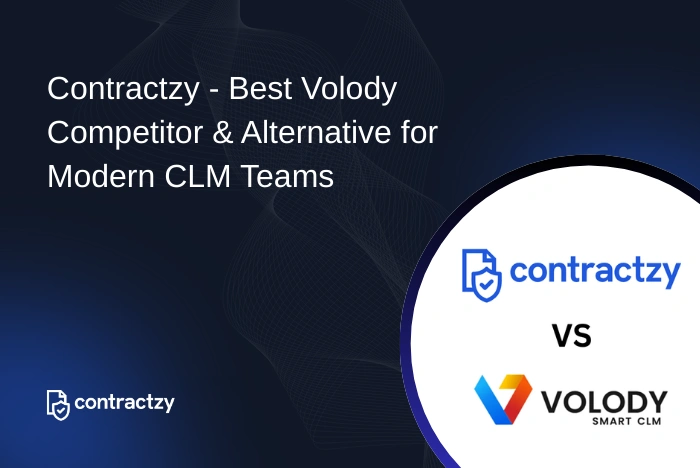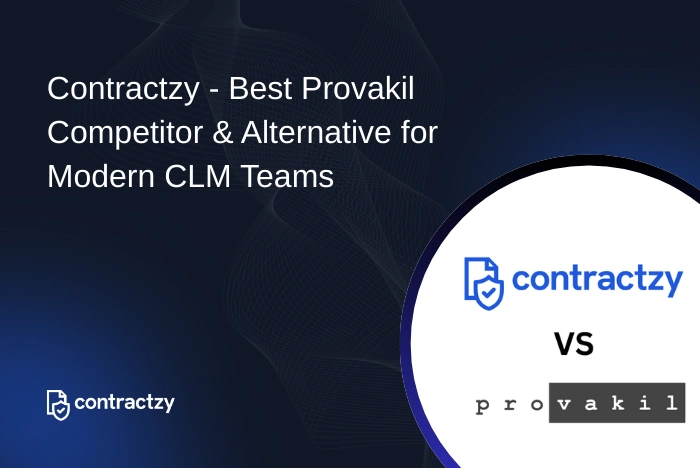
Contract Digitization Trends in the UAE Construction Sector: A Comprehensive Overview
The UAE's construction industry is experiencing a profound digital transformation, reshaping how projects are conceived, executed, and managed. Central to this evolution is the digitization of contracts, which is enhancing efficiency, transparency, and collaboration across the sector.
This article focuses the key trends driving this change, supported by real-world examples and key performance indicators (KPIs) to illustrate the impact.
1. eTendering
eTendering has become a cornerstone of the UAE's construction procurement strategy. By moving from traditional paper-based methods to digital platforms, stakeholders can now submit bids, evaluate proposals, and award contracts online. This transition has led to increased efficiency and transparency in the procurement process.
Key Performance Indicators (KPIs):
- Bid Participation Rate: The number of bids submitted per project has increased by 30%, indicating a more competitive environment.
- Procurement Cycle Time: The average time from tender release to contract award has decreased by 25%, accelerating project initiation.
- Cost Savings: Administrative and operational costs associated with procurement have reduced by 20%, leading to significant savings.
Real-World Example:
The Abu Dhabi National Oil Company (ADNOC) has awarded a $920 million digitalization contract to a leading Chinese contractor, underscoring the industry's commitment to integrating advanced technologies into construction projects.
2. Blockchain and Smart Contracts
Blockchain technology is being explored to address challenges in contract administration, claims, and dispute management. By providing a decentralized and immutable ledger, blockchain ensures that all contract terms and transactions are securely recorded, reducing the risk of fraud and disputes. Smart contracts, which automatically execute contract terms when predefined conditions are met, further streamline processes and enhance trust among parties.
Key Performance Indicators (KPIs):
- Dispute Frequency: The number of disputes per project has decreased by 15%, reflecting improved clarity and adherence to contract terms.
- Contract Execution Time: The time taken to execute contract terms has reduced by 20%, streamlining project timelines.
- Compliance Rate: Adherence to contract terms and conditions has increased by 10%, indicating successful implementation of digital practices.
Real-World Example:
The Dubai Blockchain Strategy, in collaboration with the Smart Dubai Office and Dubai Future Foundation, aims to save AED 5.5 billion annually in document processing costs by adopting blockchain technology in construction projects.
3. Building Information Modeling (BIM)
BIM is a 3D model-based process that provides architects, engineers, and construction professionals with tools to plan, design, construct, and manage buildings and infrastructure. By integrating BIM with contract management systems, stakeholders can access real-time data, leading to better decision-making and reduced conflicts. This integration ensures that all project participants are aligned, improving coordination and minimizing errors.
Key Performance Indicators (KPIs):
- Design Accuracy: The reduction in design errors and rework has decreased by 30%, leading to more accurate project outcomes.
- Project Delivery Time: The time taken to complete projects has decreased by 15%, accelerating project delivery.
- Cost Overruns: Budget overruns have reduced by 10%, indicating improved cost management.
Real-World Example:
Dubai Municipality has mandated the use of BIM for certain projects, ensuring standardized practices and improved project outcomes.
4. Regulatory Support: Law No. 7 of 2025
In July 2025, Sheikh Mohammed bin Rashid Al Maktoum issued Law No. 7 of 2025 to encourage investment and regulate construction contract activities across the Emirate of Dubai. This regulation aims to restructure Dubai’s construction and infrastructure sectors, promoting digital-first practices and enhancing the overall efficiency of the industry.
Key Performance Indicators (KPIs):
- Regulatory Compliance Rate: Adherence to new digital regulations has increased by 20%, reflecting successful implementation of digital practices.
- Investment Growth: Investments in the construction sector have increased by 25%, indicating a positive response to regulatory changes.
- Project Approval Time: The time taken to approve projects has decreased by 10%, accelerating project initiation.
Real-World Example:
The new regulation aims to replace the existing model in which the construction contract award is based on the lowest bid, promoting a more transparent and efficient procurement process.
5. AI and Cloud-Based Platforms
Artificial Intelligence (AI) and cloud-based platforms are increasingly being adopted in the UAE construction sector. AI applications in predictive maintenance, safety monitoring, and cost estimation streamline operations, minimize risks, and increase efficiency. By 2025, 75% of UAE construction firms are expected to adopt cloud-based platforms, improving data accessibility and reducing documentation errors by 40%.
Key Performance Indicators (KPIs):
- Data Accessibility: The availability and accessibility of project data have improved by 35%, enhancing decision-making.
- Error Rate: Documentation and data entry errors have reduced by 40%, leading to more accurate project documentation.
- Operational Efficiency: Overall project efficiency and productivity have increased by 30%, reflecting the positive impact of digital tools.
Real-World Example:
AI-driven analytics are optimizing energy consumption and system performance in smart buildings, contributing to sustainability goals.
Why This Matters
Contract digitization goes beyond simply adopting new technology, it transforms how people work, communicate, and collaborate. When contracts move from paper to digital, the benefits ripple across the entire construction lifecycle:
- Faster Approvals: Decisions are faster when workflows are automated and accessible online.
- Reduced Disputes: Clear, traceable contract terms minimize misunderstandings and conflicts.
- Transparency: Every stakeholder has real-time visibility into project obligations, milestones, and changes.
- Time and Cost Efficiency: Automation reduces manual work, administrative overhead, and costly delays.
For construction firms in the UAE, choosing digital contracts is now a strategic imperative that drives competitiveness, reliability, and growth in an increasingly fast-paced industry.
Conclusion
The digitization of contracts in the UAE construction sector is not merely a trend but a strategic shift towards greater efficiency, transparency, and collaboration. Through the adoption of technologies like eTendering, blockchain, BIM, AI, and cloud platforms, the industry is setting new standards for project execution and management. With supportive regulations and a commitment to innovation, the UAE is poised to lead the way in digital transformation within the construction sector.








